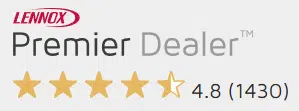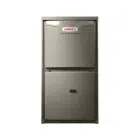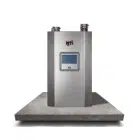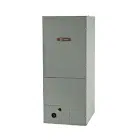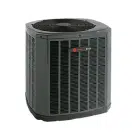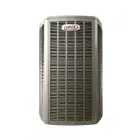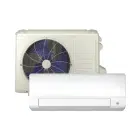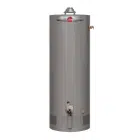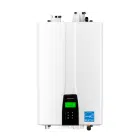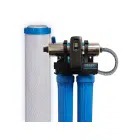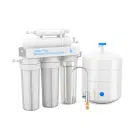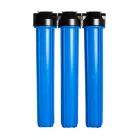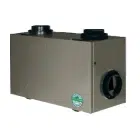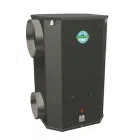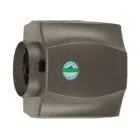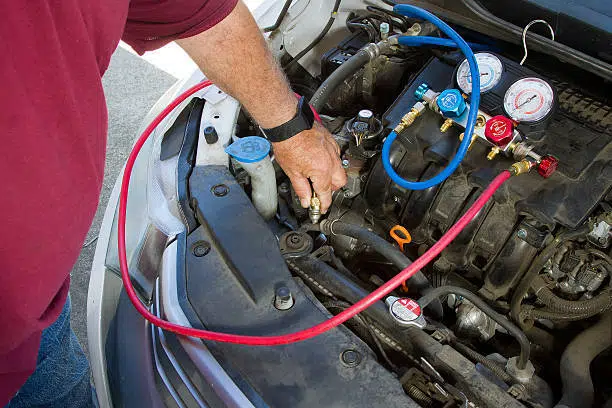
Table of Contents
Selecting the right heating system for your home is a crucial decision that impacts both comfort and energy costs. In Canada’s diverse climate, where winters can be harsh and energy efficiency is a priority, homeowners often find themselves debating between two primary options: furnaces and heat pumps. In this comprehensive guide, we’ll delve into the differences between these heating systems to help you make an informed choice for your household.
Furnace Heating Systems: Overview
Furnaces are perhaps the most traditional heating system found in Canadian homes. They operate by burning fuel, typically natural gas, propane, or oil, to generate heat which is then distributed throughout the home via ductwork. Gas furnaces are particularly common due to their efficiency and widespread availability of natural gas infrastructure in many areas.
One of the key advantages of gas furnaces is their high heating capacity, making them well-suited for colder climates where temperatures can plummet below freezing for extended periods. Additionally, gas furnaces offer quick and consistent heating, ensuring your home stays warm even during the coldest winter nights.
However, gas furnaces also come with considerations. They require access to a fuel source, whether it’s a connection to a natural gas line or regular deliveries of propane or oil. Additionally, gas furnaces can produce emissions during combustion, contributing to air pollution and requiring proper ventilation.
Advantages of Furnaces:
- High Heating Capacity: Furnaces, especially gas-powered ones, offer strong heating performance, making them suitable for colder climates where temperatures can drop significantly.
- Quick Heating: Furnaces can quickly raise indoor temperatures, providing rapid warmth and comfort during cold weather spells.
- Widespread Availability: Natural gas infrastructure is prevalent in many areas, making gas furnaces a convenient and accessible heating option for homeowners.
- Reliability: Furnaces have a long history of reliable operation when properly maintained, providing consistent heating for homes over many years.
Disadvantages of Furnaces:
- Environmental Impact: Gas furnaces produce emissions during combustion, contributing to air pollution and greenhouse gas emissions, which can have negative environmental consequences.
- Fuel Dependency: Gas furnaces require access to a fuel source, whether it’s natural gas, propane, or oil, which can be subject to price fluctuations and supply issues.
- Higher Operating Costs: Depending on local utility rates and the efficiency of the unit, gas furnaces can result in higher operating costs compared to more energy-efficient heating options.
- Ventilation Requirements: Proper ventilation is necessary to safely vent combustion byproducts from gas furnaces, adding complexity to installation and maintenance processes.
Find your perfect furnace from the top-notch brands on our official website via the link below.
Overview of Heat Pumps
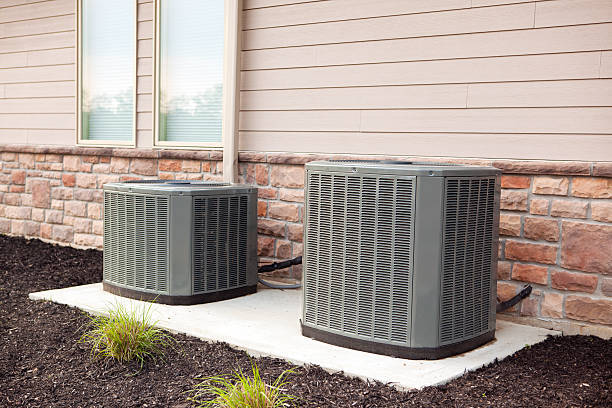
In recent years, heat pumps have gained popularity as an alternative to traditional furnaces, particularly in regions with milder climates. Heat pumps work by extracting heat from the outdoor air (or ground, in the case of ground-source heat pumps) and transferring it indoors to heat the home. They can also reverse this process to provide cooling during the summer months, offering year-round comfort.
Electric heat pumps are the most common type, utilizing electricity to power the heat transfer process. They are renowned for their energy efficiency, as they can deliver up to three times more heating or cooling energy than the electrical energy they consume. This makes them an attractive option for homeowners looking to reduce their carbon footprint and energy bills.
One of the main advantages of heat pumps is their versatility. They can efficiently heat your home in moderately cold temperatures and provide cooling during the summer, eliminating the need for separate heating and cooling systems. However, their efficiency may decrease in extremely cold climates, leading to higher energy consumption during peak winter months.
Advantages of Heat Pumps:
- Energy Efficiency: Heat pumps are highly energy-efficient heating and cooling systems, capable of delivering more heating or cooling energy than the electrical energy they consume.
- Versatility: Heat pumps can provide both heating and cooling, eliminating the need for separate HVAC systems and offering year-round comfort in a single unit.
- Environmental Friendliness: Electric heat pumps produce no on-site emissions during operation, making them a cleaner and more environmentally friendly heating option compared to fossil fuel-based systems.
- Lower Operating Costs: In regions with access to affordable electricity or renewable energy sources, heat pumps can offer lower operating costs compared to traditional heating systems, leading to potential long-term savings.
Disadvantages of Heat Pumps:
- Performance in Cold Climates: Heat pumps may experience decreased efficiency and performance in extremely cold climates, leading to higher energy consumption and reduced heating capacity during winter months.
- Upfront Costs: Heat pumps typically have higher upfront costs compared to traditional furnaces, especially high-efficiency models or ground-source heat pumps, which may require additional installation expenses.
- Maintenance Requirements: Heat pumps require regular maintenance to ensure optimal performance, including filter changes, outdoor unit cleaning, and occasional refrigerant recharge, which can add to the overall cost of ownership.
- Limited Availability of Ground Source: Ground-source heat pumps, while highly efficient, may have limited availability and higher installation costs due to the need for underground loop systems, making them less accessible for some homeowners.
Find out how you can save up to $7,800 on your new energy-efficient heat pump with Government Rebates in Ontario in our previous article via the link below.
Heat Pump Vs. Furnace: Comparison of Efficiency and Operating Costs
When comparing the efficiency and operating costs heat pump vs. furnace, several factors come into play. Gas furnaces are typically rated by their Annual Fuel Utilization Efficiency (AFUE), representing the percentage of fuel converted into usable heat. Modern gas furnaces can achieve AFUE ratings of 95% or higher, indicating minimal waste and lower energy costs.
On the other hand, electric heat pumps are rated by their Seasonal Energy Efficiency Ratio (SEER) for cooling and Heating Seasonal Performance Factor (HSPF) for heating. High-efficiency heat pumps can have SEER ratings above 20 and HSPF ratings above 10, indicating significant energy savings compared to conventional air conditioning units and electric resistance heating systems.
The operating costs of both systems can vary depending on factors such as local utility rates, climate, and the efficiency of the unit. In regions with access to affordable natural gas, a high-efficiency gas furnace may offer lower operating costs compared to an electric heat pump. However, in areas with higher electricity prices or where renewable energy sources are prevalent, heat pumps may prove to be more cost-effective over time.
Aspect | Gas Furnaces | Electrical Heat Pumps |
|---|---|---|
Efficiency Ratings | AFUE (Annual Fuel Utilization Efficiency) ratings of 95% or higher. | SEER (Seasonal Energy Efficiency Ratio) for cooling above 20 and HSPF (Heating Seasonal Performance Factor) above 10. |
Operating Costs | Lower in regions with affordable natural gas and high-efficiency units. | Potentially lower in areas with higher electricity prices or access to renewable energy sources. |
Climate Suitability | Well-suited for colder climates where gas supply is reliable. | May experience decreased efficiency in extremely cold climates, but effective in moderate climates. |
Environmental Impact | Emissions during combustion contribute to air pollution. | No on-site emissions during operation, making them a cleaner option. |
Versatility | Provide heating only. | Provide both heating and cooling, eliminating the need for separate systems. |
Upfront Costs | Typically lower upfront costs compared to heat pumps. | Generally higher upfront costs, especially for high-efficiency or ground-source models. |
Maintenance Requirements
| Regular maintenance required, including filter changes and ventilation checks.
| Regular maintenance required, including filter changes, outdoor unit cleaning, and occasional refrigerant recharge.
|
Cost Considerations: What Saves More Money in the Long Run?
When evaluating the cost-effectiveness of a heat pump vs. furnace, it’s essential to consider not only upfront expenses but also long-term operating costs and potential savings. While gas furnaces may have lower initial purchase and installation costs compared to electric heat pumps, the overall cost picture can change over the lifespan of the system.
Gas Furnaces
Gas furnaces typically have lower upfront costs, making them an attractive option for homeowners seeking immediate savings on their HVAC system. Additionally, in regions with access to affordable natural gas, gas furnaces may offer lower operating costs compared to electric heat pumps, especially when considering the high efficiency of modern units.
However, it’s crucial to consider the long-term implications of relying on fossil fuels for heating. While gas furnaces can provide reliable and cost-effective heating in the short term, they come with ongoing fuel expenses and potential environmental impacts. As natural gas prices fluctuate and concerns about greenhouse gas emissions grow, homeowners may face increased energy costs and regulatory changes that impact the affordability of gas heating systems.
Electric Heat Pumps
Electric heat pumps, while often more expensive to install initially, can offer significant long-term savings and benefits. Their high energy efficiency and ability to provide both heating and cooling make them a versatile and cost-effective choice for many homeowners, particularly in regions with higher electricity prices or access to renewable energy sources.
Heat pumps can achieve SEER ratings above 20 and HSPF ratings above 10, indicating superior energy efficiency compared to conventional heating and cooling systems. This increased efficiency translates to lower monthly energy bills and reduced environmental impact over the lifespan of the system. Additionally, many government incentives and rebates are available for homeowners who choose to install energy-efficient heat pump systems, further offsetting upfront costs and improving overall cost-effectiveness.
Find all you need to know before buying a new heat pump in our comprehensive guide via the link below.
https://thehvacservice.ca/buy-heat-pumps/
So, while gas furnaces may offer lower upfront costs and reliable heating performance in the short term, electric heat pumps often provide greater long-term savings and benefits. By investing in an energy-efficient heat pump, you can enjoy lower monthly energy bills, reduced environmental impact, and potential incentives or rebates that further improve cost-effectiveness.
Considerations for Climate and Location

Climate and geographical location play a significant role in determining the suitability of furnaces and heat pumps for your home. In colder regions like Canada, where winters can be severe and prolonged, the performance of heat pumps may be compromised during extreme cold snaps. Electric heat pumps may struggle to extract sufficient heat from the outdoor air when temperatures drop below freezing, leading to decreased efficiency and increased energy consumption.
Gas furnaces, on the other hand, are designed to provide reliable heating even in the coldest conditions. Their high heating capacity and ability to quickly raise indoor temperatures make them a preferred choice for homeowners in colder climates. However, it’s essential to consider the availability and cost of natural gas or alternative fuel sources in your area when opting for a gas furnace.
Environmental Impact
When it comes to environmental impact, electric heat pumps have a clear advantage over gas furnaces. Gas furnaces emit carbon dioxide (CO2) and other pollutants during combustion, contributing to air pollution and greenhouse gas emissions. In contrast, electric heat pumps utilize electricity, which can be sourced from renewable energy or low-carbon sources, reducing their environmental footprint.
Additionally, electric heat pumps operate more efficiently than gas furnaces, resulting in lower overall energy consumption and reduced reliance on fossil fuels. Many government incentives and rebates are available for homeowners who choose to install energy-efficient heat pump systems, further incentivizing the transition to greener heating solutions.
Maintenance and Longevity
Both furnaces and heat pumps require regular maintenance to ensure optimal performance and longevity. Gas furnaces should be inspected annually by a qualified technician to check for leaks, clean components, and ensure proper airflow. It’s also essential to replace air filters regularly and address any issues promptly to prevent breakdowns and ensure safety.
Electric heat pumps require professional maintenance service, including regular filter changes and inspections of outdoor units to remove debris and ensure proper airflow. Additionally, heat pump systems may require occasional refrigerant recharge or compressor maintenance to maintain efficiency and performance.
In terms of longevity, gas furnaces typically have a lifespan of 15 to 20 years with proper maintenance, while heat pumps can last 10 to 15 years or more. Factors such as climate, usage patterns, and the quality of installation can impact the lifespan of both systems so consider this while thinking about a heat pump vs. furnace.
Conclusion
Choosing between a furnace and a ultimately depends on your specific needs, budget, and local climate conditions. Gas furnaces offer reliable heating performance, particularly in colder climates, while electric heat pumps provide energy-efficient heating and cooling year-round. By considering factors such as efficiency, operating costs, environmental impact, and maintenance requirements, you can make an informed decision that ensures comfort and sustainability for your home.
For personalized advice and professional installation of heating systems in Canada, contact HVAC Service Solutions today. Our team of experts is dedicated to helping you find the perfect heating solution for your home, ensuring comfort, efficiency, and peace of mind all year round. Reach out to us today to schedule a consultation and take the first step towards a more comfortable and energy-efficient home.
Frequent Asked Questions
What is the difference between a furnace and a heat pump?
Furnaces and heat pumps are both heating systems, but they operate differently. Furnaces generate heat by burning fuel (such as natural gas, propane, or oil) in a combustion chamber. The heat produced is then transferred to the air, which is distributed throughout the home via ductwork. In contrast, heat pumps use electricity to transfer heat from the outdoor air or ground into the home. They do this by circulating a refrigerant through an outdoor coil (to absorb heat) and an indoor coil (to release heat). Heat pumps can also reverse this process to provide cooling during the summer months.
Which heating system is more energy-efficient, a furnace or a heat pump?
Generally, heat pumps are more energy-efficient than furnaces. This is because heat pumps can deliver more heating or cooling energy than the electrical energy they consume. The efficiency of a furnace is measured by its Annual Fuel Utilization Efficiency (AFUE) rating, while the efficiency of a heat pump is measured by its Seasonal Energy Efficiency Ratio (SEER) for cooling and Heating Seasonal Performance Factor (HSPF) for heating. High-efficiency heat pumps can have SEER ratings above 20 and HSPF ratings above 10, indicating significant energy savings compared to conventional HVAC systems.
Are heat pumps suitable for cold climates like Canada?
Heat pumps can be suitable for cold climates like Canada, but their performance may vary depending on the specific model and climate conditions. Traditional air-source heat pumps may experience decreased efficiency in extremely cold temperatures, leading to higher energy consumption and reduced heating capacity. However, cold-climate heat pumps are designed to operate efficiently in colder climates by incorporating features such as enhanced insulation, variable-speed compressors, and defrost cycles. It’s essential to choose a heat pump model that is specifically designed for cold climates if you live in an area with harsh winters.
Do heat pumps provide cooling as well as heating?
Yes, one of the advantages of heat pumps is their ability to provide both heating and cooling. During the warmer months, heat pumps operate in reverse to extract heat from inside the home and transfer it outdoors, effectively cooling the indoor space. This dual functionality eliminates the need for separate heating and cooling systems, making heat pumps a versatile and cost-effective HVAC solution.
What are the advantages of gas furnaces over heat pumps?
Gas furnaces offer several advantages over heat pumps, including quick and reliable heating performance, especially in colder climates. Furnaces can quickly raise indoor temperatures, providing comfort during cold weather spells. Additionally, gas furnaces are often more affordable to install initially, particularly in areas with access to affordable natural gas. They also have a long history of reliable operation when properly maintained, making them a popular choice for homeowners in regions with reliable gas infrastructure.
Are there any environmental concerns associated with gas furnaces?
Yes, gas furnaces produce emissions during combustion, including carbon dioxide (CO2), nitrogen oxides (NOx), and other pollutants. While modern furnaces are designed to minimize emissions through advanced combustion technology and high-efficiency burners, they still contribute to air pollution and greenhouse gas emissions. Additionally, the extraction, transportation, and combustion of natural gas can have environmental impacts such as habitat disruption, water pollution, and methane leakage, which is a potent greenhouse gas.
How do I choose between a gas furnace and a heat pump for my home?
When choosing between a gas furnace and a heat pump for your home, consider factors such as your climate, energy costs, budget, and environmental priorities. Gas furnaces are well-suited for colder climates where reliable gas infrastructure is available, while heat pumps are more suitable for moderate climates or regions with higher electricity prices. Consulting with HVAC professionals can also help you evaluate your options and make an informed decision based on your specific needs and circumstances.
Do heat pumps require more maintenance than gas furnaces?
Both heat pumps and gas furnaces require regular maintenance to ensure optimal performance and longevity. Heat pumps may require additional maintenance tasks compared to gas furnaces, such as outdoor unit cleaning, refrigerant recharge, and occasional defrost cycle checks. However, proper maintenance is essential for both types of systems to prevent breakdowns, maximize efficiency, and prolong the lifespan of the equipment. Regular filter changes, duct cleaning, and annual inspections by qualified HVAC technicians are recommended for both heat pumps and gas furnaces.
Can I install a heat pump if I already have ductwork in my home?
Yes, heat pumps can be installed in homes with existing ductwork, especially if you’re replacing an old heating and cooling system. In this case, the heat pump can utilize the existing ductwork to distribute heated or cooled air throughout the home. However, if your home does not have ductwork or if you prefer a ductless option, ductless mini-split heat pumps are also available. These systems consist of an outdoor unit connected to one or more indoor air-handling units, allowing for zone-specific heating and cooling without the need for ductwork.
Are there any incentives or rebates available for installing energy-efficient heating systems?
Yes, many government incentives, rebates, and tax credits are available for homeowners who choose to install energy-efficient heating systems, including heat pumps. These incentives are often offered at the federal, state/provincial, and local levels to promote energy conservation and reduce greenhouse gas emissions. They can help offset upfront costs and improve the overall cost-effectiveness of the system. Examples of incentives may include rebates for purchasing high-efficiency equipment, tax credits for energy-efficient home improvements, and financing programs with low-interest rates for energy upgrades. It’s recommended to check with local utility companies, government agencies, and energy efficiency organizations to find available incentives in your area.
Share
